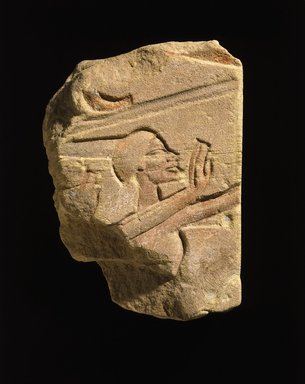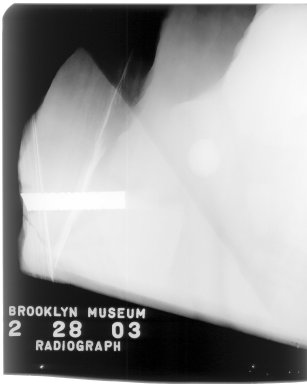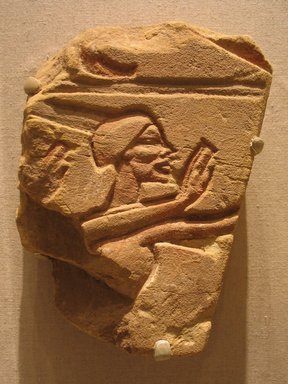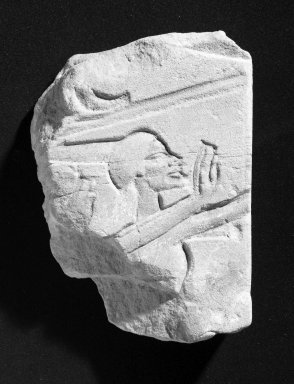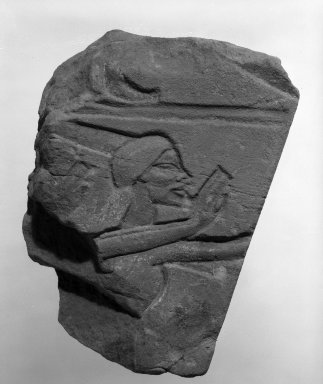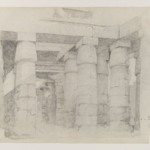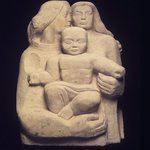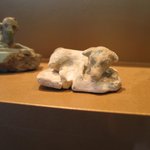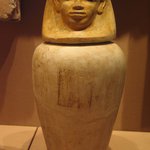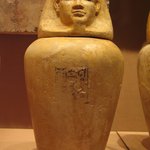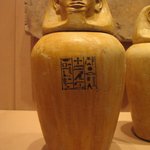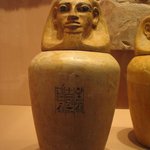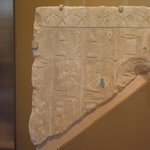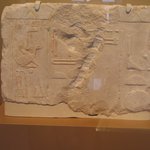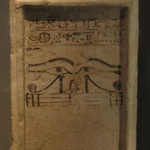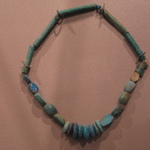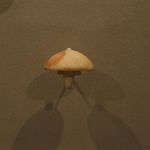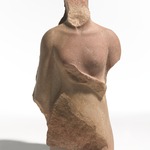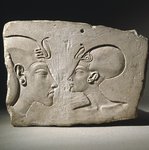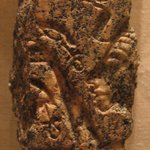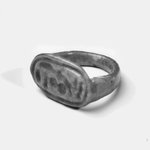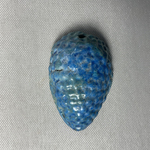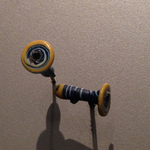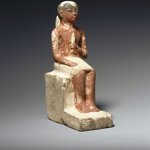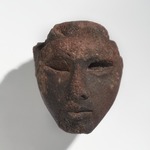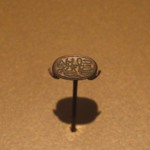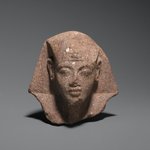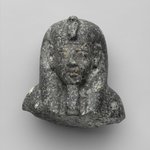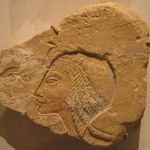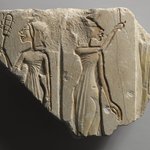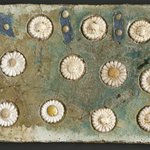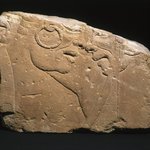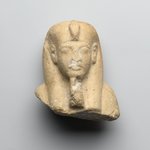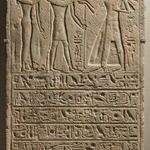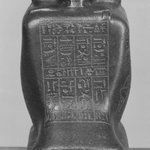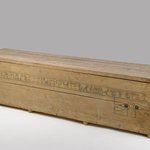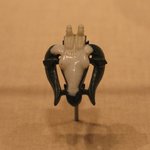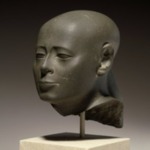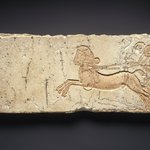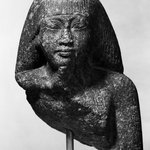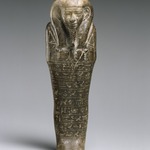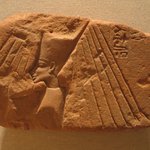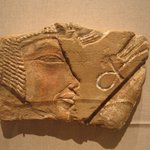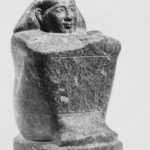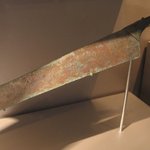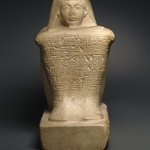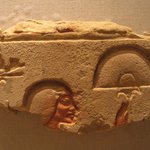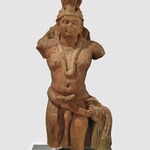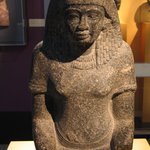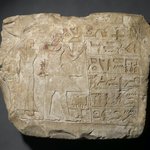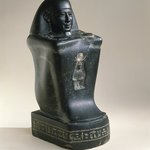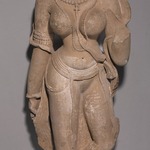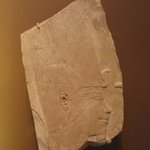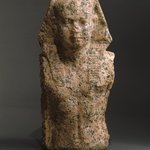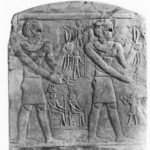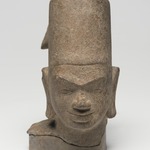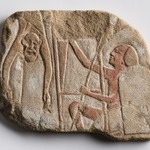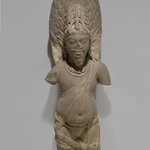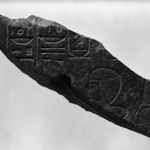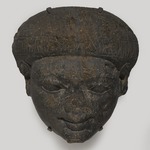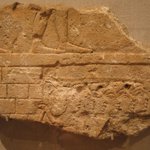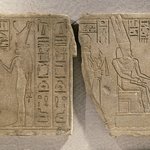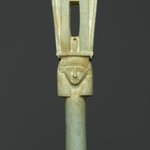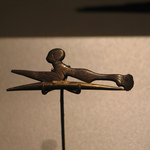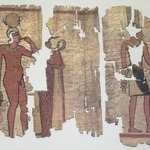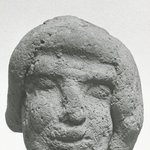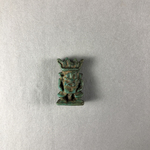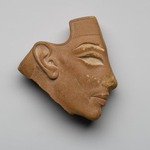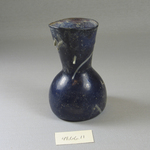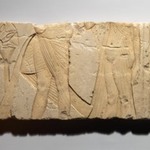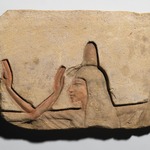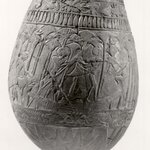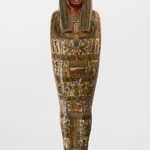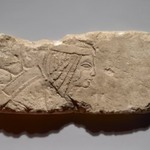Detail from a Row of Foreigners
Egyptian, Classical, Ancient Near Eastern Art
On View: Amarna Period, Martha A. and Robert S. Rubin Gallery, 3rd Floor
The feathered headdress and distinctive facial features identify this man as a Nubian, an inhabitant of the land south of Egypt. Comparable figures on more complete scenes indicate that this fragment originally showed rows of Nubians, Syrians and Canaanites kneeling and extending their arms in adoration of Akhenaten.
MEDIUM
Sandstone
DATES
ca. 1353–1336 B.C.E.
DYNASTY
Dynasty 18
PERIOD
New Kingdom, Amarna Period
DIMENSIONS
9 3/16 x 7 3/16 x 2 7/16 in. (23.3 x 18.2 x 6.2 cm)
(show scale)
ACCESSION NUMBER
74.154
CREDIT LINE
Gift of Edith and Milton Lowenthal
PROVENANCE
Archaeological provenance not yet documented, possibly from the temple Rewd-Menew, Karnak, Egypt; by February 25, 1972, acquired by Edith and Milton Lowenthal of New York, NY; 1974, gift of Edith and Milton Lowenthal to the Brooklyn Museum.
Provenance FAQ
CATALOGUE DESCRIPTION
Portion of sandstone talatat with decoration in sunk relief. In one register are the upper half and raised hands of a Nubian and the arms and hands of two other figures. In the upper register are portions of two figures. Traces of black in feather of Nubian and red flesh of all figures.
Condition: Modern oblique cut at right-hand edge all other edges damaged. Nicks in areas.
CAPTION
Egyptian. Detail from a Row of Foreigners, ca. 1353–1336 B.C.E. Sandstone, 9 3/16 x 7 3/16 x 2 7/16 in. (23.3 x 18.2 x 6.2 cm). Brooklyn Museum, Gift of Edith and Milton Lowenthal, 74.154. Creative Commons-BY (Photo: Brooklyn Museum, 74.154_SL1.jpg)
IMAGE
overall, 74.154_SL1.jpg. Brooklyn Museum photograph
"CUR" at the beginning of an image file name means that the image was created by a curatorial staff member. These study images may be digital point-and-shoot photographs, when we don\'t yet have high-quality studio photography, or they may be scans of older negatives, slides, or photographic prints, providing historical documentation of the object.
RIGHTS STATEMENT
Creative Commons-BY
You may download and use Brooklyn Museum images of this three-dimensional work in accordance with a
Creative Commons license. Fair use, as understood under the United States Copyright Act, may also apply.
Please include caption information from this page and credit the Brooklyn Museum. If you need a high resolution file, please fill out our online
application form (charges apply).
For further information about copyright, we recommend resources at the
United States Library of Congress,
Cornell University,
Copyright and Cultural Institutions: Guidelines for U.S. Libraries, Archives, and Museums, and
Copyright Watch.
For more information about the Museum's rights project, including how rights types are assigned, please see our
blog posts on copyright.
If you have any information regarding this work and rights to it, please contact
copyright@brooklynmuseum.org.
RECORD COMPLETENESS
Not every record you will find here is complete. More information is available for some works than for others, and some entries have been updated more recently. Records are frequently reviewed and revised, and
we welcome any additional information you might have.
